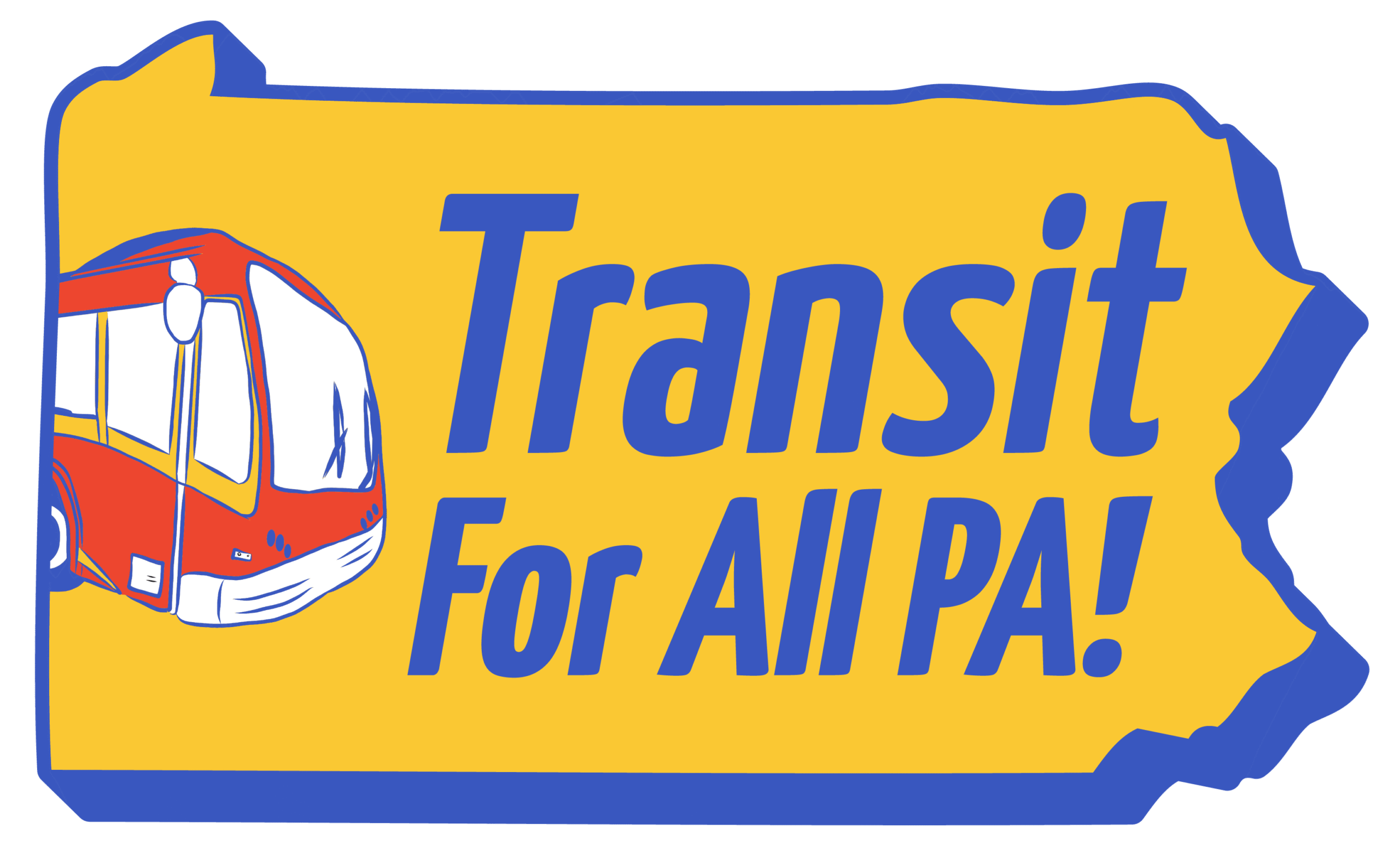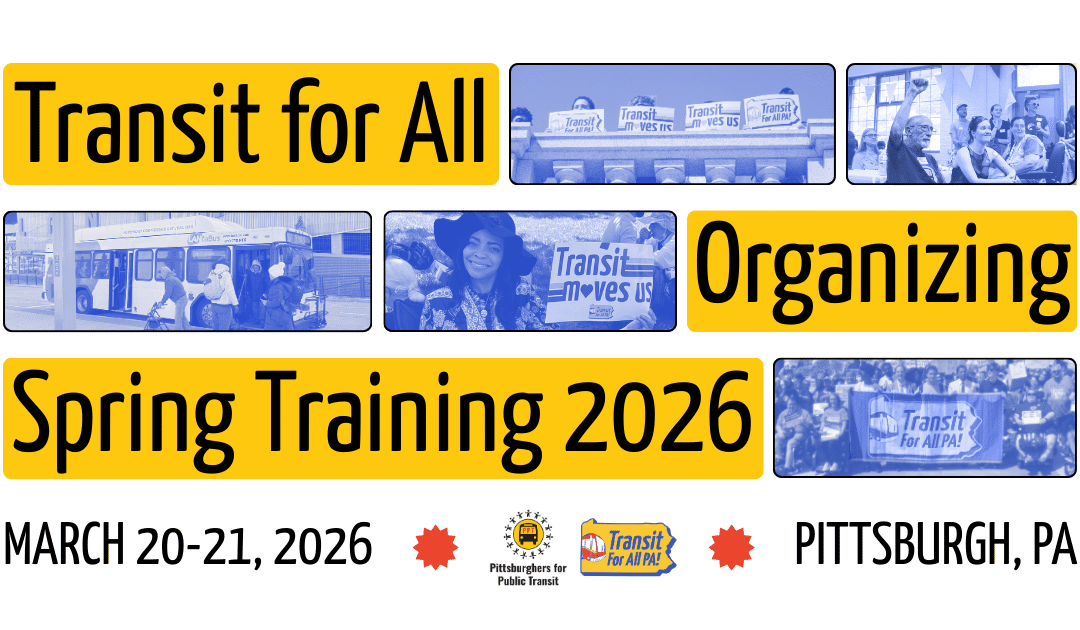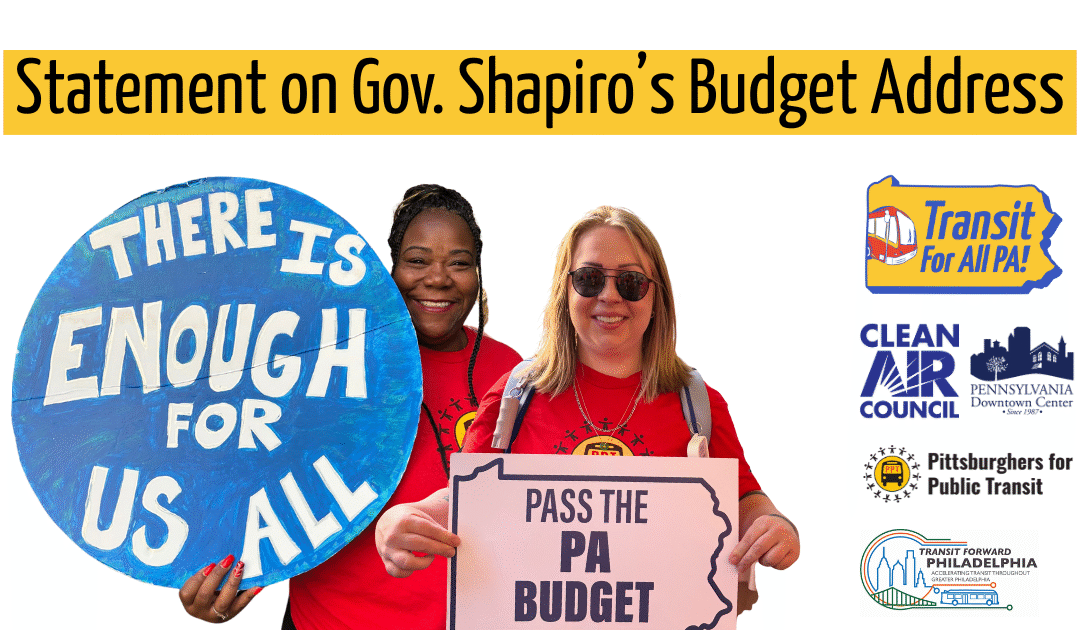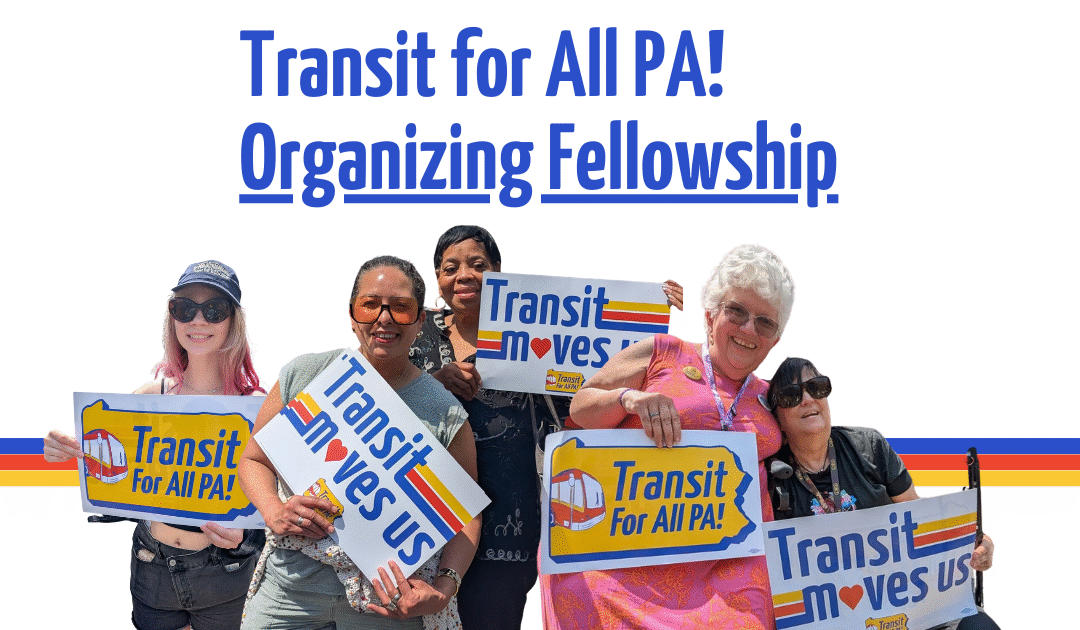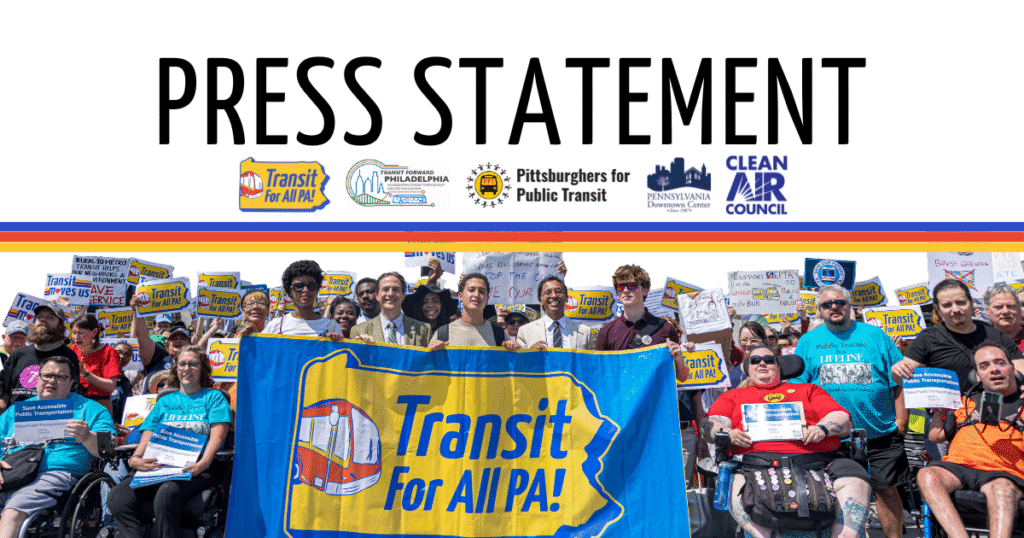
Governor Josh Shapiro again took executive action to preserve the status quo for SEPTA. His action requests $220 million in “emergency-” designated funds from the Public Transportation Trust Fund to address the federal government’s recent order to immediately preserve the safety and accessibility of Pennsylvania’s largest transit system. However, this action does not solve Pennsylvania’s public transit crisis. Our state elected officials still must pass sustainable transit funding.
After transit funding was “taken off the table” in this year’s state budget negotiations, the Transit For All PA Coalition – made up of thousands of transit riders, transit workers and stakeholders – kept calling on state leaders to take urgent action to keep our transit safe and in service. Governor Shapiro is responding to this continued organizing. Today’s action shows the power of advocates making their voices heard and the importance of transit across PA.
This year alone, the PA House five times passed bipartisan investments in statewide public transit that would maintain current service levels. And Transit For All PA drafted legislation to fund service restoration and expansion, which now sits in both the House and Senate. We have the solutions in front of us, and our coalition will continue advocating for new, recurring transit funding – something that our elected officials must still take action to achieve.
SEPTA riders have experienced service cuts for weeks due to safety concerns in the trolley tunnel and on Regional Rail trains. This has illustrated why cannibalizing capital dollars to fund transit operations have triggered service cuts through other means. The emergency funding allows Regional Rail and trolley service to return, and safety to be improved, including by obtaining temporary vehicles to take the place of SEPTA’s nearly-60-year-old Silverliner IVs.
And yet, as Secretary Carroll and others acknowledged, riders and workers in every other region across Pennsylvania still face imminent threats to their transit service. In our most rural congressional district, over 22% of residents live in a household with minimum to no car access. Without new resources into the statewide Public Transit Trust Fund, communities across the Commonwealth will continue to face severe service cuts, and safety and accessibility issues. Namely there will be:
- No relief for Pittsburgh Regional Transit, whose own Monongahela Incline faced mechanical issues just last week.
- No relief for LANTA in the Lehigh Valley, whose riders and workers are confronting service cuts and fare increases in January 2026 without new funding.
- No relief for Red Rose Transit in Lancaster and BARTA in Reading, Rabbitransit across central PA, LCTA in Wilkes-Barre, Pocono Pony in Monroe County, CamTran in Johnstown, and so many others, whose riders and workers still face service cuts by January 2027.
Additionally, our state government has not addressed the statewide shared-ride and paratransit crisis – causing agencies in every corner of PA to annually rob millions from their fixed-route service just to maintain bare-minimum, federally-mandated ADA service.
Governor Shapiro’s action is right. But its necessity only underscores that the failure to pass new money for transit in this budget has consequences for all of our communities across the state.
Moving money around from pot to pot does not invest in our economy, our healthcare, our educational attainment, and our mobility, all of which depend on transit.
This year, Transit For All PA has grown to represent 45,000 transit riders, workers, and supporters in every legislative district in the commonwealth, showing that from Erie to Scranton, Philly to Pittsburgh, Harrisburg to Johnstown, and everywhere in-between, Transit Moves Us. We need our legislators to respond to that universal demand and fund transit operations and capital so we can get where we need to go, safely and reliably, every day.
